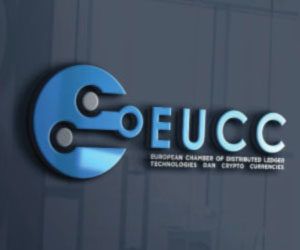The Bank of Lithuania released a statement regarding virtual currencies on October 11, 2017, stating that Lithuanian financial services must clearly dissociate from activities related to virtual currency, basing its position on the financial risks associated with virtual currencies.[1] Disassociation forbids financial market participants from engaging in the sale or exchange of cryptocurrencies, offering payment methods for customers to obtain crypto (using debit or credit cards to purchase crypto), and executing any operations in, or activities similar to, cryptocurrencies.[2] Lithuania regulates exchanges and wallet services through licensing and authorization procedures to prevent money laundering and terrorist financing.[3] Lithuanian companies and Lithuanian affiliates of EU and non-EU companies may apply for crypto registration, and subsequently implement AML/KYC procedures if approved.[4] Other registration requirements include customer identification and verification, reporting to the Lithuanian Financial Intelligence Unit, record keeping, designating an AML compliance manager, and implementing internal control policies and procedures.[5]
Additionally, in 2018 Lithuania established a comprehensive regulatory framework for ICOs, outlined in Lithuania’s Ministry of Finance ‘Guidelines for ICOs’.[6] ICOs involving a risk of the loss of investor’s funds are subject to investment related legislative requirements.[7] ICOs are subject to AML and CFT laws.[8] Income received from individual purchases and sales of crypto are taxed at a fixed 15% personal income tax rate.[9] Founders of ICOs who receive tokens without payment will not be subject to personal income tax until the tokens are sold.[10] For corporate income tax, the funds collected from tokens issued through ICOs, which only confirm payment, are not considered securities but are recognized as income when the tokens are transferred.[11] Funds collected from an ICO are not considered subject to corporate income tax when: 1) tokens issued have characteristics of securities under Article 1.101-1.108 of Lithuania’s Civil Code and correspond to undertaken obligations; or 2) tokens issued grant the right to use a product or services by paying in tokens.[12] For VAT purposes, tokens are classified as either 1) tokens equated with securities; 2) equated with a virtual currency; or 3) tokens ranked as coupons.[13] The release of tokens, tokens treated as securities supplied as payment through an ICO and treated as an issuance of shares, a supply of tokens treated as virtual currency, and tokens treated as coupons supplied in Lithuania, are all exempt from VAT.[14] Mining is exempt from VAT unless a person receives a reward for supplied mining services and these services are supplied in Lithuania.[15] In August 2020, Lithuania proposed a uniform regulation for digital assets across Europe, to transition from domestic level directives to regulations that are directly applicable and binding across the European Union.[16] According to the Bank, a clear definition of cryptocurrency is needed at the EU level to regulate and treat digital securities or financial instruments in the same manner.[17]
Source: Freeman Law

